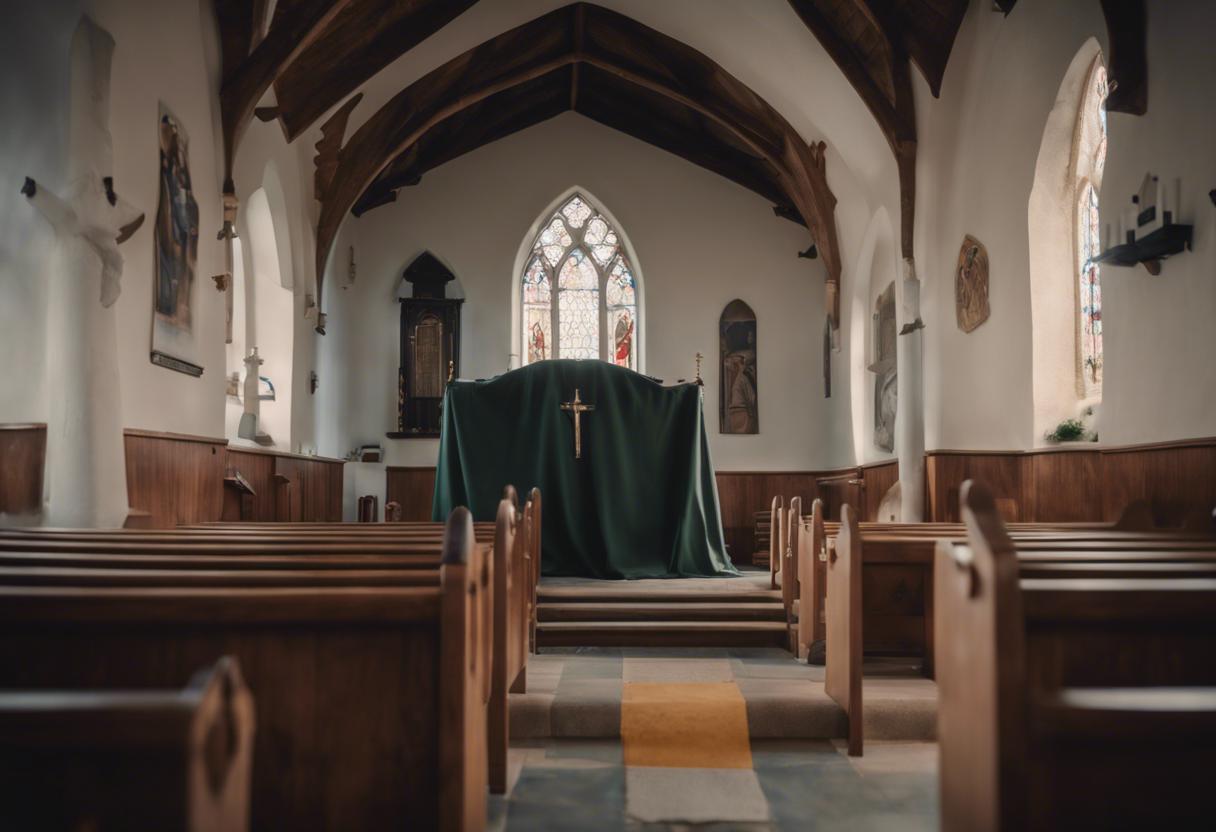In the ongoing Synod of Bishops in Rome, the presence of two Irish women with voting rights is no longer met with the festivity it once would have sparked among Irish citizens. The dwindling excitement can, in part, be attributed to the Catholic Church’s mishandling of sexual abuse allegations that escalated public scepticism about Catholicism in conjunction with increasing income and individualism.
It is astounding that two out of the five female congregational representatives from the International Union of Superiors General (UISG), an organisation that brings together over 2,000 member congregations along with over 600,000 worldwide religious women, hail from Ireland.
Sisters Patricia Murray and Mary Teresa Barron, from the Loreto Sisters and Sisters of Our Lady of Apostles respectively, are a testament to the global impact of Irish religious women. Additionally, there is a representative from Canada, Sister Elizabeth Davis, who belongs to the Sisters of Mercy, a congregation established by the innovative Catherine McAuley, an underappreciated Irish figure. Other representatives include Sister Elysée Izerimana from Burundi and Sister Maria Nirmalini from India.
Diversity is further enhanced by the Irish male representatives, Bishops Brendan Leahy and Alan McGuckian, and a non-voting theological expert, Father Eamonn Conway. The voting privilege which was traditionally reserved for 10 male religious order members has been altered by Pope Francis to include five men and women in religious service. Sister Nathalie Becquart was named undersecretary to the Synod on synodality in 2021, becoming the first woman to have a vote. Currently, over 70 non-bishops, more than half of which are women, hold voting rights.
While there’s discussion around whether adding votes from non-bishops to the Synod of Bishops is the right avenue for layperson inclusion, it is unanimously agreed that a multitude of women’s perspectives is vital, especially on issues that don’t affect the “Church’s unity of doctrine, discipline and communion,” as prhased by the Synodal Working Document.
The Dublin native, Sr Pat Murray, first came into the public eye as the representative for the Loreto Sisters during the tragic 1986 fire at the Loreto on the Green convent, which claimed the lives of six elderly sisters. The memory continues to move her to tears to this day. She served as the head of Loreto, Crumlin and was instrumental in carrying out dangerous, yet crucial ecumenical work with both Catholic and Protestant educators amidst the Troubles.
Sr Murray has been a prominent figure within the Loreto sisters in Ireland and globally. She was the inaugural executive director of the Solidarity with South Sudan project, a humanitarian effort where 260 religious orders contributed to the resuscitation of South Sudan’s educational, medical, agricultural, and pastoral infrastructures following its independence. In 2014, she assumed the role of executive secretary of UISG.
Sr Mary T Barron, hailing from Donegal, heads the Sisters of Our Lady of Apostles. She devoted many years to youth and women empowerment in Nigeria and Tanzania, and managing HIV/Aids programmes. In 2023, she ascended to the presidency of UISG.
Not all are in agreement over synodal voting rights – while some view them as a step too far, others believe they fall short and advocate for more progressive reforms that are already dismissed by Pope Francis. Francis has been known to have a close-knit group of nine cardinals, to which he has insisted on adding three women in the last year. As reported by the Irish Catholic, a recent meeting saw the cardinals taking breaks to accommodate the breastfeeding needs of economist Valentina Rotondi and her three-month-old child. Rotondi was present to enlighten them about the precariousness of women’s place in the economy.
This stage of the Synod has consciously relegated contentious issues to study groups. The aim is to engage people in understanding the potential of deep cooperation between all factions of the church, meaning both lay and ordained members, in real-world situations.
These Irish ladies along with other female delegates, including a mother acknowledged with applause for her request for assistance in developing her young ones within the Christian faith, serve as great examples of how women are already holding key roles. They have a keen understanding of the areas in which the church is expanding. Among the catholic population of 1.3 billion, two-thirds are not residents of the Western region and most of them show little interest in some of the key issues predominant in Europe. For instance, the subject of polygamy is of utmost relevance in Africa, home to 256 million believers who constitute 19% of the global Catholic population. African Catholicism, unlike the 21% European Catholics, is witnessing a consistent growth both in terms of its size and devotion. A staggering 94% of Nigerian Catholics are regular attendees of the weekly mass.
Clericalism has posed a major problem within the church, however, it can’t be completely eradicated until there is a transformation in structures, particularly a higher engagement of the laity in church’s mission. Those belonging to religious orders have a long-standing tradition of a consultative leadership approach, a viewpoint that can potentially indicate what the change could entail.
The impact of the work being done by these women and all other participants may not make news, but as stated by Fr Eamonn Conway, an Irish theological expert attending the synod, “the outcomes of Synod 2021-2024 will transpire on God’s schedule and conditions, not ours.”

